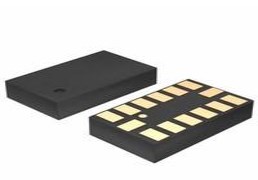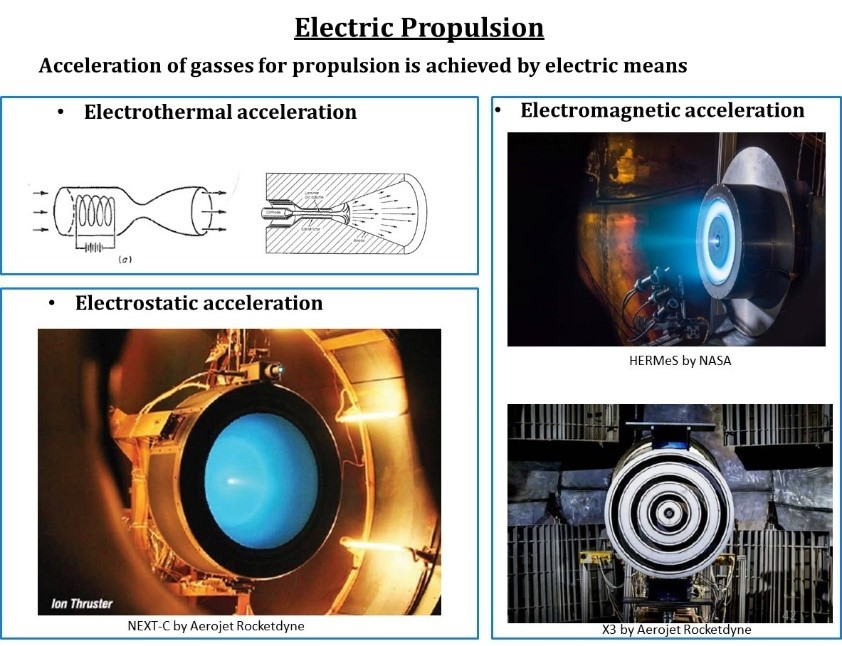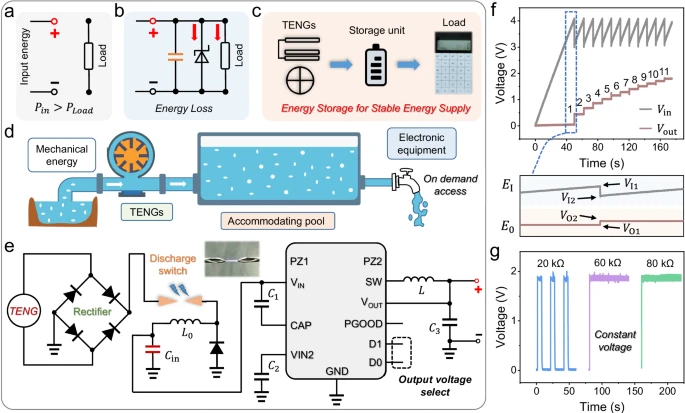M4T28-BR12SH1 Battery: M4T28-BR12SH1 Datasheet, Logic Diagram
2.8V Battery and Crystal IC Batteries Timekeeper®, Snaphat® Series M4T28 4 Pins 32.768kHz 2.8V SOIC









2.8V Battery and Crystal IC Batteries Timekeeper®, Snaphat® Series M4T28 4 Pins 32.768kHz 2.8V SOIC
The M4T28-BR12SH1 SNAPCHAT top is a detachable lithium power source. This article will cover its datasheet, application, feature and more details about

M4T28-BR12SH1 | Photostat machine Memory Problem | software problem
M4T28-BR12SH1 Logic Diagram

M4T28-BR12SH1 Logic Diagram
Signal Name
| X1 | Crystal input |
| X2 | Crystal output |
| VBAT- | Negative voltage |
| VgBAT+ | Positive voltage |
M4T28-BR12SH1 Overview
The M4T28-BR12SH1 SNAPHAT top is a detachable lithium power source. The SNAPHAT top contains both the battery and crystal and is designed to be snapped on after the SOIC is surface mounted on the PC board. Thus the two-piece solution prevents the battery and crystal from being exposed to the high temperatures of the surface mount process.
M4T28-BR12SH1 Feature
Provides battery backup power for the serial real-time clock, non-volatile TIMEKEEPER ® and supervisor devices in the 28 - or 44 -pin SNAPHAT® SOIC package
Removable battery avoids heat associated with the surface-mount process
Snaps directly onto surface-mounted SNAPHAT SOIC
Choice of battery capacities
– M4T28-BR12SH = 48 mAh
– M4T32-BR12SH = 120 mAh
Keyed insertion to ensure proper assembly
Removable for replacement and proper disposal
Pb-free package
Available in Ecopack® packages, tubes
M4T28-BR12SH1 Application
Clock & Timing
Consumer Electronics
Embedded Design
Development
Portable Devices
M4T28-BR12SH1 Battery Characteristics
The figure shows below illustrates the lithium coin cell discharge rate for a given load. This demonstrates the characteristically flat voltage level supplied by the battery until very near the end of its life. These discharge levels have been greatly accelerated in comparison to the normal, actual usage.

Battery discharge rates
M4T28-BR12SH1 Package

M4T28-BR12SH1 Package
M4T28-BR12SH1 Manufacturer
STMicroelectronics is a global independent semiconductor company and is a leader in developing and delivering semiconductor solutions across the spectrum of microelectronics applications. An unrivalled combination of silicon and system expertise, manufacturing strength, Intellectual Property (IP) portfolio and strategic partners positions the Company at the forefront of System-on-Chip (SoC) technology and its products play a key role in enabling today's convergence trends.
Specifications
- TypeParameter
- Lifecycle Status
Lifecycle Status refers to the current stage of an electronic component in its product life cycle, indicating whether it is active, obsolete, or transitioning between these states. An active status means the component is in production and available for purchase. An obsolete status indicates that the component is no longer being manufactured or supported, and manufacturers typically provide a limited time frame for support. Understanding the lifecycle status is crucial for design engineers to ensure continuity and reliability in their projects.
ACTIVE (Last Updated: 7 months ago) - Factory Lead Time12 Weeks
- Contact Plating
Contact plating (finish) provides corrosion protection for base metals and optimizes the mechanical and electrical properties of the contact interfaces.
Gold - Mount
In electronic components, the term "Mount" typically refers to the method or process of physically attaching or fixing a component onto a circuit board or other electronic device. This can involve soldering, adhesive bonding, or other techniques to secure the component in place. The mounting process is crucial for ensuring proper electrical connections and mechanical stability within the electronic system. Different components may have specific mounting requirements based on their size, shape, and function, and manufacturers provide guidelines for proper mounting procedures to ensure optimal performance and reliability of the electronic device.
Surface Mount, Through Hole - Package / Case
refers to the protective housing that encases an electronic component, providing mechanical support, electrical connections, and thermal management.
SOIC - Number of Pins28
- Weight2.214806g
- Operating Temperature
The operating temperature is the range of ambient temperature within which a power supply, or any other electrical equipment, operate in. This ranges from a minimum operating temperature, to a peak or maximum operating temperature, outside which, the power supply may fail.
0°C~70°C TA - Packaging
Semiconductor package is a carrier / shell used to contain and cover one or more semiconductor components or integrated circuits. The material of the shell can be metal, plastic, glass or ceramic.
Bulk - Series
In electronic components, the "Series" refers to a group of products that share similar characteristics, designs, or functionalities, often produced by the same manufacturer. These components within a series typically have common specifications but may vary in terms of voltage, power, or packaging to meet different application needs. The series name helps identify and differentiate between various product lines within a manufacturer's catalog.
Timekeeper®, Snaphat® - JESD-609 Code
The "JESD-609 Code" in electronic components refers to a standardized marking code that indicates the lead-free solder composition and finish of electronic components for compliance with environmental regulations.
e4 - Part Status
Parts can have many statuses as they progress through the configuration, analysis, review, and approval stages.
Active - Moisture Sensitivity Level (MSL)
Moisture Sensitivity Level (MSL) is a standardized rating that indicates the susceptibility of electronic components, particularly semiconductors, to moisture-induced damage during storage and the soldering process, defining the allowable exposure time to ambient conditions before they require special handling or baking to prevent failures
1 (Unlimited) - Number of Terminations4
- ECCN Code
An ECCN (Export Control Classification Number) is an alphanumeric code used by the U.S. Bureau of Industry and Security to identify and categorize electronic components and other dual-use items that may require an export license based on their technical characteristics and potential for military use.
EAR99 - TypeBattery and Crystal
- HTS Code
HTS (Harmonized Tariff Schedule) codes are product classification codes between 8-1 digits. The first six digits are an HS code, and the countries of import assign the subsequent digits to provide additional classification. U.S. HTS codes are 1 digits and are administered by the U.S. International Trade Commission.
8542.39.00.01 - Terminal Position
In electronic components, the term "Terminal Position" refers to the physical location of the connection points on the component where external electrical connections can be made. These connection points, known as terminals, are typically used to attach wires, leads, or other components to the main body of the electronic component. The terminal position is important for ensuring proper connectivity and functionality of the component within a circuit. It is often specified in technical datasheets or component specifications to help designers and engineers understand how to properly integrate the component into their circuit designs.
DUAL - Terminal Form
Occurring at or forming the end of a series, succession, or the like; closing; concluding.
PIN/PEG - Supply Voltage
Supply voltage refers to the electrical potential difference provided to an electronic component or circuit. It is crucial for the proper operation of devices, as it powers their functions and determines performance characteristics. The supply voltage must be within specified limits to ensure reliability and prevent damage to components. Different electronic devices have specific supply voltage requirements, which can vary widely depending on their design and intended application.
2.8V - Frequency
In electronic components, the parameter "Frequency" refers to the rate at which a signal oscillates or cycles within a given period of time. It is typically measured in Hertz (Hz) and represents how many times a signal completes a full cycle in one second. Frequency is a crucial aspect in electronic components as it determines the behavior and performance of various devices such as oscillators, filters, and communication systems. Understanding the frequency characteristics of components is essential for designing and analyzing electronic circuits to ensure proper functionality and compatibility with other components in a system.
32.768kHz - Base Part Number
The "Base Part Number" (BPN) in electronic components serves a similar purpose to the "Base Product Number." It refers to the primary identifier for a component that captures the essential characteristics shared by a group of similar components. The BPN provides a fundamental way to reference a family or series of components without specifying all the variations and specific details.
M4T28 - Pin Count
a count of all of the component leads (or pins)
4 - JESD-30 Code
JESD-30 Code refers to a standardized descriptive designation system established by JEDEC for semiconductor-device packages. This system provides a systematic method for generating designators that convey essential information about the package's physical characteristics, such as size and shape, which aids in component identification and selection. By using JESD-30 codes, manufacturers and engineers can ensure consistency and clarity in the specification of semiconductor packages across various applications and industries.
R-XDSS-P4 - Operating Supply Voltage
The voltage level by which an electrical system is designated and to which certain operating characteristics of the system are related.
2.8V - Supply Voltage-Max (Vsup)
The parameter "Supply Voltage-Max (Vsup)" in electronic components refers to the maximum voltage that can be safely applied to the component without causing damage. It is an important specification to consider when designing or using electronic circuits to ensure the component operates within its safe operating limits. Exceeding the maximum supply voltage can lead to overheating, component failure, or even permanent damage. It is crucial to adhere to the specified maximum supply voltage to ensure the reliable and safe operation of the electronic component.
3V - Load Capacitance
the amount of capacitance measured or computed across the crystal terminals on the PCB. Frequency Tolerance. Frequency tolerance refers to the allowable deviation from nominal, in parts per million (PPM), at a specific temperature, usually +25°C.
12.5pF - Battery Chemistry
A battery is a device that stores chemical energy, and converts it to electricity. This is known as electrochemistry and the system that underpins a battery is called an electrochemical cell. A battery can be made up of one or several (like in Volta's original pile) electrochemical cells.
Lithium - Capacity
In electronic components, "Capacity" typically refers to the maximum amount of electrical charge that a component can store. It is measured in units called farads (F). Capacitors are the most common components that have a capacity rating. The capacity of a capacitor determines how much energy it can store and release when connected in a circuit. Higher capacity capacitors can store more charge and are often used in applications requiring larger energy storage or filtering capabilities. It is important to select a capacitor with the appropriate capacity to ensure proper functioning of the circuit.
48mAh - Number of Timers1
- Rechargeability
The quality of being rechargeable, especially with reference to an electric battery or device.
Non-Rechargeable - Height7.75mm
- Length21.84mm
- Width14.99mm
- REACH SVHC
The parameter "REACH SVHC" in electronic components refers to the compliance with the Registration, Evaluation, Authorization, and Restriction of Chemicals (REACH) regulation regarding Substances of Very High Concern (SVHC). SVHCs are substances that may have serious effects on human health or the environment, and their use is regulated under REACH to ensure their safe handling and minimize their impact.Manufacturers of electronic components need to declare if their products contain any SVHCs above a certain threshold concentration and provide information on the safe use of these substances. This information allows customers to make informed decisions about the potential risks associated with using the components and take appropriate measures to mitigate any hazards.Ensuring compliance with REACH SVHC requirements is essential for electronics manufacturers to meet regulatory standards, protect human health and the environment, and maintain transparency in their supply chain. It also demonstrates a commitment to sustainability and responsible manufacturing practices in the electronics industry.
No SVHC - Radiation Hardening
Radiation hardening is the process of making electronic components and circuits resistant to damage or malfunction caused by high levels of ionizing radiation, especially for environments in outer space (especially beyond the low Earth orbit), around nuclear reactors and particle accelerators, or during nuclear accidents or nuclear warfare.
No - RoHS Status
RoHS means “Restriction of Certain Hazardous Substances” in the “Hazardous Substances Directive” in electrical and electronic equipment.
ROHS3 Compliant - Lead Free
Lead Free is a term used to describe electronic components that do not contain lead as part of their composition. Lead is a toxic material that can have harmful effects on human health and the environment, so the electronics industry has been moving towards lead-free components to reduce these risks. Lead-free components are typically made using alternative materials such as silver, copper, and tin. Manufacturers must comply with regulations such as the Restriction of Hazardous Substances (RoHS) directive to ensure that their products are lead-free and environmentally friendly.
Lead Free
Datasheet PDF
- Datasheets :
M4T28-BR12SH1-STMicroelectronics-datasheet-538054.pdf
M4T28-BR12SH1-STMicroelectronics-datasheet-12534457.pdf
M4T28-BR12SH1-STMicroelectronics-datasheet-10836324.pdf
M4T28-BR12SH1-STMicroelectronics-datasheet-41475566.pdf
M4T28-BR12SH1-STMicroelectronics-datasheet-14078654.pdf
M4T28-BR12SH1-STMicroelectronics-datasheet-8197130.pdf
M4T28-BR12SH1-STMicroelectronics-datasheet-51383.pdf
M4T28-BR12SH1-STMicroelectronics-datasheet-519084.pdf
M4T28-BR12SH1-STMicroelectronics-datasheet-67794.pdf
M4T28-BR12SH1-STMicroelectronics-datasheet-112213.pdf
M4T28-BR12SH1-STMicroelectronics-datasheet-558223.pdf
pid_4804978_m4t28-br12sh1-stmicroelectronics-datasheet-41475566.pdf
- MSDS Material Safety Datasheet :
Trend Analysis
What is a detachable lithium power source?
M4T28-BR12SH1 SNAPHAT top.
Where is the SOIC surface mounted?
the PC board.
What prevents the battery and crystal from being exposed to the high temperatures of the surface mount process?
The two-piece solution.
What is a detachable lithium power source for STs serial real-time clock?
M4Txx-BR12SH SNAPHAT® top.
 ADXL345 Accelerometer: Datasheet, Pinout and Alternatives
ADXL345 Accelerometer: Datasheet, Pinout and Alternatives09 September 20217665
 ATTINY13V CMOS 8-bit Microcontroller: Features, Pinout and Datasheet
ATTINY13V CMOS 8-bit Microcontroller: Features, Pinout and Datasheet13 January 20221062
 TPS2051CDBVR Power-Distribution Switches: Layout, Pinout, and Datasheet
TPS2051CDBVR Power-Distribution Switches: Layout, Pinout, and Datasheet09 April 20221557
 STM32F103CBT6 - STM - Microcontroller
STM32F103CBT6 - STM - Microcontroller29 April 20216168
 LMR16006YDDCR: PWM DC/DC, Step-Down, Datasheet
LMR16006YDDCR: PWM DC/DC, Step-Down, Datasheet22 February 20221308
 AT24C08C EEPROM: Pinout, Equivalent and Datasheet
AT24C08C EEPROM: Pinout, Equivalent and Datasheet18 December 20213838
 LMV321 Rail-to-Rail Op Amp: Datasheet, Pinout and Applications
LMV321 Rail-to-Rail Op Amp: Datasheet, Pinout and Applications14 October 20212086
 A Comprehensive Guide to OP07CS8#PBF Operational Amplifier
A Comprehensive Guide to OP07CS8#PBF Operational Amplifier06 March 202493
 The Role of SiC in Extended Space Missions
The Role of SiC in Extended Space Missions20 September 20242021
![Comprehensive Guide to Car Chips [FAQs]](https://res.utmel.com/Images/Article/e686e156-9363-4bbc-b1fd-c44fbe3ecbda.jpg) Comprehensive Guide to Car Chips [FAQs]
Comprehensive Guide to Car Chips [FAQs]11 January 20225456
 Si vs SiC Diodes: A Performance Study of Interleaved Boost Converters for PV Applications
Si vs SiC Diodes: A Performance Study of Interleaved Boost Converters for PV Applications14 March 20232658
 Analysis of Semiconductor Wafers
Analysis of Semiconductor Wafers22 October 202513329
 Analyzing the Latest Electronic Components Trends and Their Functions 2023 – 2024
Analyzing the Latest Electronic Components Trends and Their Functions 2023 – 202421 July 20252727
 Semiconductor Industry's Uphill Battle Towards Net Zero
Semiconductor Industry's Uphill Battle Towards Net Zero22 September 2023637
 Improving the Energy Conversion Efficiency of Triboelectric Nanogenerators
Improving the Energy Conversion Efficiency of Triboelectric Nanogenerators19 November 20242428
 Toggle Switches: Features, Types and Applications
Toggle Switches: Features, Types and Applications23 January 20219129
STMicroelectronics
In Stock: 920
United States
China
Canada
Japan
Russia
Germany
United Kingdom
Singapore
Italy
Hong Kong(China)
Taiwan(China)
France
Korea
Mexico
Netherlands
Malaysia
Austria
Spain
Switzerland
Poland
Thailand
Vietnam
India
United Arab Emirates
Afghanistan
Åland Islands
Albania
Algeria
American Samoa
Andorra
Angola
Anguilla
Antigua & Barbuda
Argentina
Armenia
Aruba
Australia
Azerbaijan
Bahamas
Bahrain
Bangladesh
Barbados
Belarus
Belgium
Belize
Benin
Bermuda
Bhutan
Bolivia
Bonaire, Sint Eustatius and Saba
Bosnia & Herzegovina
Botswana
Brazil
British Indian Ocean Territory
British Virgin Islands
Brunei
Bulgaria
Burkina Faso
Burundi
Cabo Verde
Cambodia
Cameroon
Cayman Islands
Central African Republic
Chad
Chile
Christmas Island
Cocos (Keeling) Islands
Colombia
Comoros
Congo
Congo (DRC)
Cook Islands
Costa Rica
Côte d’Ivoire
Croatia
Cuba
Curaçao
Cyprus
Czechia
Denmark
Djibouti
Dominica
Dominican Republic
Ecuador
Egypt
El Salvador
Equatorial Guinea
Eritrea
Estonia
Eswatini
Ethiopia
Falkland Islands
Faroe Islands
Fiji
Finland
French Guiana
French Polynesia
Gabon
Gambia
Georgia
Ghana
Gibraltar
Greece
Greenland
Grenada
Guadeloupe
Guam
Guatemala
Guernsey
Guinea
Guinea-Bissau
Guyana
Haiti
Honduras
Hungary
Iceland
Indonesia
Iran
Iraq
Ireland
Isle of Man
Israel
Jamaica
Jersey
Jordan
Kazakhstan
Kenya
Kiribati
Kosovo
Kuwait
Kyrgyzstan
Laos
Latvia
Lebanon
Lesotho
Liberia
Libya
Liechtenstein
Lithuania
Luxembourg
Macao(China)
Madagascar
Malawi
Maldives
Mali
Malta
Marshall Islands
Martinique
Mauritania
Mauritius
Mayotte
Micronesia
Moldova
Monaco
Mongolia
Montenegro
Montserrat
Morocco
Mozambique
Myanmar
Namibia
Nauru
Nepal
New Caledonia
New Zealand
Nicaragua
Niger
Nigeria
Niue
Norfolk Island
North Korea
North Macedonia
Northern Mariana Islands
Norway
Oman
Pakistan
Palau
Palestinian Authority
Panama
Papua New Guinea
Paraguay
Peru
Philippines
Pitcairn Islands
Portugal
Puerto Rico
Qatar
Réunion
Romania
Rwanda
Samoa
San Marino
São Tomé & Príncipe
Saudi Arabia
Senegal
Serbia
Seychelles
Sierra Leone
Sint Maarten
Slovakia
Slovenia
Solomon Islands
Somalia
South Africa
South Sudan
Sri Lanka
St Helena, Ascension, Tristan da Cunha
St. Barthélemy
St. Kitts & Nevis
St. Lucia
St. Martin
St. Pierre & Miquelon
St. Vincent & Grenadines
Sudan
Suriname
Svalbard & Jan Mayen
Sweden
Syria
Tajikistan
Tanzania
Timor-Leste
Togo
Tokelau
Tonga
Trinidad & Tobago
Tunisia
Turkey
Turkmenistan
Turks & Caicos Islands
Tuvalu
U.S. Outlying Islands
U.S. Virgin Islands
Uganda
Ukraine
Uruguay
Uzbekistan
Vanuatu
Vatican City
Venezuela
Wallis & Futuna
Yemen
Zambia
Zimbabwe




